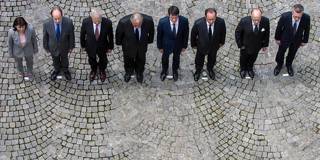OnPoint Subscriber Exclusive
Longer Reads provide in-depth analysis of the ideas and forces shaping politics, economics, international affairs, and more.

Confronting France’s Jihadis
The official French response to repeated terrorist attacks in recent years continues to focus myopically on symbolic measures, embodied in a broadening sartorial crackdown on devout Muslim women. But France doesn’t need fewer burkinis; it needs more jobs and better domestic intelligence.
PARIS – France has become accustomed to terrorist outrages in the name of Islam, be it the murderous attack on the satirical magazine Charlie Hebdo and a kosher supermarket in January 2015 or this summer’s mass slaughter by a “jihadi” driving a truck through the Bastille Day festivities along Nice’s Promenade des Anglais. The question for France – and for Project Syndicate commentators – is what explains these assaults and what can end them.